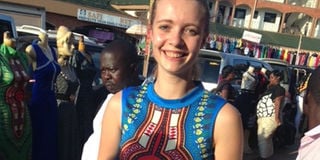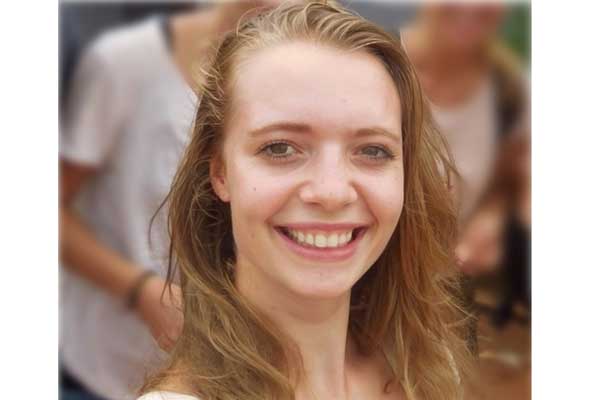Prime
Eight years without my daughter: Search for Sophia still ongoing

Sophia Koetsier during happier times. PHOTO/HANDOUT
What you need to know:
- Never forgotten. Sophia Koetsier came to Uganda as a medical intern. After her time at Lubaga hospital she went on a trip around the country.
- During the trip she disappeared, writes her mother, Marije Slijkerman.
October 28 was the day that confronted us, mercilessly, with the painful fact that it was eight years ago that our Sophia disappeared in Uganda.
It is very difficult to actually believe that eight years have passed. I have no idea how I managed to get through those years and it still feels like just a few months ago that we took her to the Amsterdam airport, with her brand-new backpack and her equally new hiking boots.
Could we ever have imagined that one of those boots would be found two months later, along the bank of the river Nile, but, to this day, no trace of Sophia herself? Not in a million years.
Background
Sophia had effortlessly acquired her Bachelor of Medicine in the early summer of 2015 and was very excited to embark on a new adventure: working as a medical intern in a Kampala hospital. She thoroughly enjoyed the work, the country, its culture and people and got along very well with her colleagues.
As was clear from her extensive weekly emails to us, her parents and brothers. After finishing her internship she went on a trip through Uganda with two fellow students.
On day six of her journey she disappeared, in Murchison Falls National Park, the darkest day in our life. A horrible day to face, a day that should never, ever, have been. The day that threw our lives into complete disarray and still does.
Circumstances are unclear, investigations left a great deal to desire and it was quickly assumed Sophia must have fallen victim to a fatal accident. Evidence pointing in that direction was never found. A puzzling trail of items was found, along the river bank, including that one hiking boot. It looked staged. We are not alone in believing there is more to this than meets the eye, including people who know more.
Left to fend for ourselves, I have kept travelling back to Uganda, desperately trying to find answers and fill in the many gaps, left by authorities in two countries. I still do.
In February of last year, the departing director of Criminal Investigations Directorate, Grace Akullo, mentioned Sophia’s disappearance on television as one of several high priority cases that needed to be solved. Shortly after, in April, her successor, Tom Magambo, formed an investigative team and requested us to give him three months/90 days to come with a report. He made clear he would not update us in the meantime. So we waited. And waited some more.
In December last year a Dutch-made television film about Sophia and her mysterious disappearance was broadcast on Ugandan television. A well-researched and carefully made news item was to be aired around 9.30 pm, to serve as an introduction to the 10 pm broadcast.
Home in Amsterdam we were watching the livestream of the television channel on YouTube, waiting for the item. But in vain. We learnt later that the police had requested the channel to not air the item. Having seen it earlier that evening with local voice over, they objected to the line ‘now, eight months later, no findings of the investigation have been shared with Sophia’s family’. However, this was a fact. We were very confused about this.
In June of this year I was finally able to read a draft report. It was clear that a number of things had been done but still, the report seemed to produce more questions than answers and strongly leaned towards the ‘fatal accident’ scenario.
This month, on my 24th trip, I received another report which seems to move in that same direction. We are still in the process of studying it closely.
Clearly, finding the truth is not easy. In an ideal world people would always be honest and truthful. But our world is far from ideal and one cannot simply believe everything someone tells you. People can, and will, withhold information for all kinds of reasons.
Thorough digging and probing is required to get to the bottom of things.
Dutch police research into why certain cold cases eventually did get solved showed that in 40 percent this happened because people started talking.
What took them so long? Well, several reasons were found, such as finally finding the courage to speak up, or they had never been approached by police; or they were simply not asked the right questions.
This seems quite relevant here too and we have no other option than to keep fighting to find out what happened to our smart, kind-hearted and beautiful Sophia.
A missing child is something you do not wish upon your worst enemy. It is extremely hard to deal with, if not impossible. Psychologists worldwide speak of ‘ambiguous loss’, a loss that is not clear and not sure. It is generally seen as the hardest and most complicated form of grief. It is ongoing, there is no closure or resolution.
We still go by ‘when nothing is sure, everything is possible’ and I am a staunch believer in miracles. They happen. Recently I read: ‘the difference between truth and fiction is that fiction has to make sense’. A profound statement, real life is indeed often stranger than fiction.
We remain deeply grateful to the wonderful people who keep supporting us and encourage us not to give up and maintain hope. We can use all the help we can get.
To those of you reading this and seeing us as easy prey to extort money from; how can you look at yourself in the mirror? Please do not waste your time, nor ours. We are not rich, we cannot get you a work permit in Europe and rewards are paid after a missing person has been found, never before.
Several articles have recently been published about Sophia’s disappearance, both in Dutch and American media.
www.findSophia.org
[email protected].




